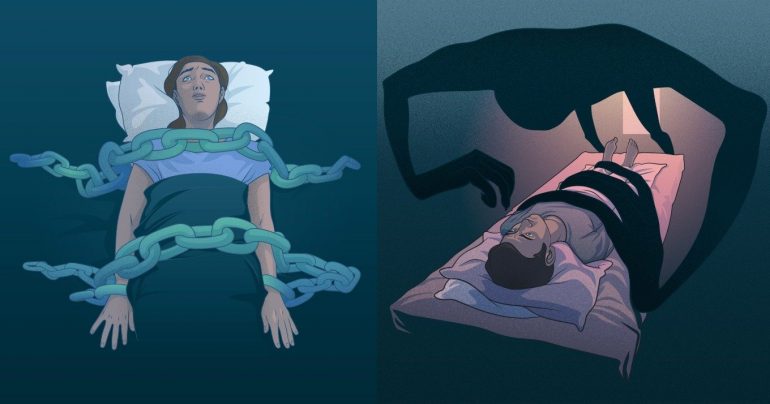Sleep paralysis: Sleep is enjoyable for the vast majority of people. However, there is a situation that makes some people hate him. This is sleep paralysis. It is a condition in which a person has a conscience. But he can not move or speak.
It usually occurs during one of the 2 transitions: when you are sleeping or waking up. A person experiences a feeling of paralysis and a feeling of heaviness, as if someone or something very heavy is sitting on it. It is usually accompanied by illusions, which makes the situation much more frightening.
Sleep paralysis: Causes
When we sleep, the body enters and exits REM (rapid eye movement) sleep. The brain commands the muscles to relax and we enter a state of atony. This state is necessary to limit our physical movements. Well, sleep paralysis occurs when our body has trouble making that transition. We are awake, but our muscles fail to come out of atony.
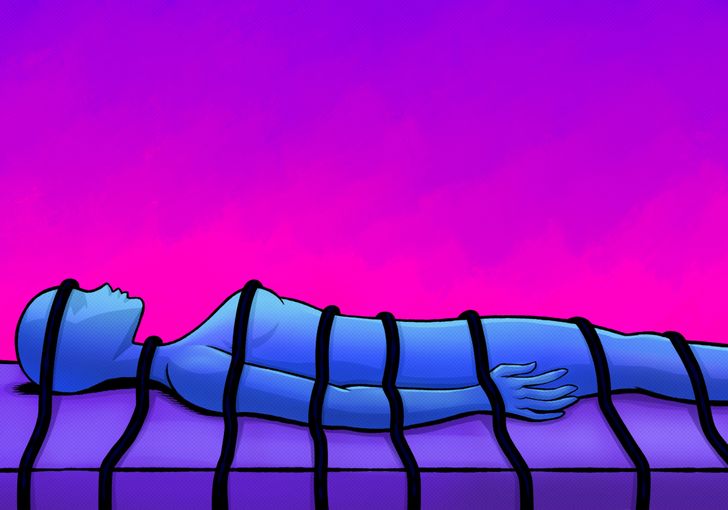
There are some possible explanations for hallucinations. One of them is that the part of our brain that is responsible for fear and emotions is very active in REM. It works, while nothing around us looks dangerous. So our brain invents it and projects it with creepy shadows and sounds.
Sleep paralysis: Factors that can lead to it
- Poor quality sleep. This includes indefinite sleep patterns and various disorders such as insomnia, narcolepsy and sleep deprivation. It is also noted that it is common in shift workers. - Sleeping in a supine position. Surprisingly, sleeping on your back has been found to be a prominent factor in sleep paralysis due to increased pressure on the lungs and airways. - Genetics. Sleep paralysis is hereditary.
- Mental issues. The relationship between sleep paralysis and mental health has not yet been investigated, but statistics show that people with psychological trauma, post-traumatic stress disorder and various worries tend to have it.
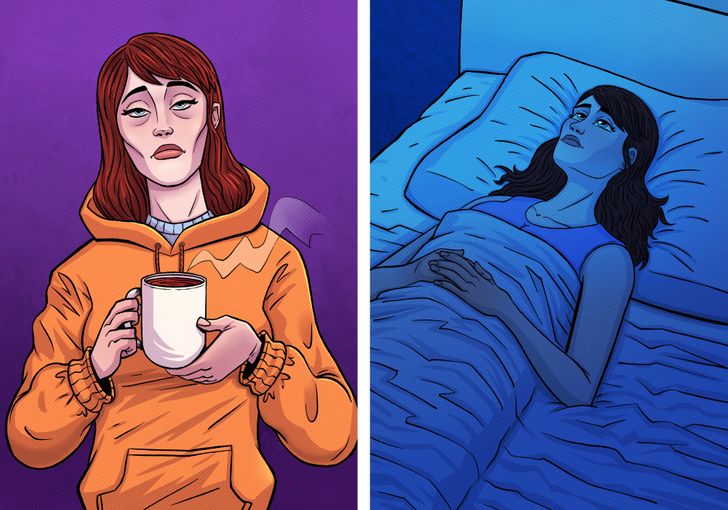
Sleep paralysis: Treatment
- Go to bed and wake up at the same time every day. - No caffeine or its derivatives before bed. - Avoid sleeping on your back or stomach. - Keep electronic devices out of the bedroom.
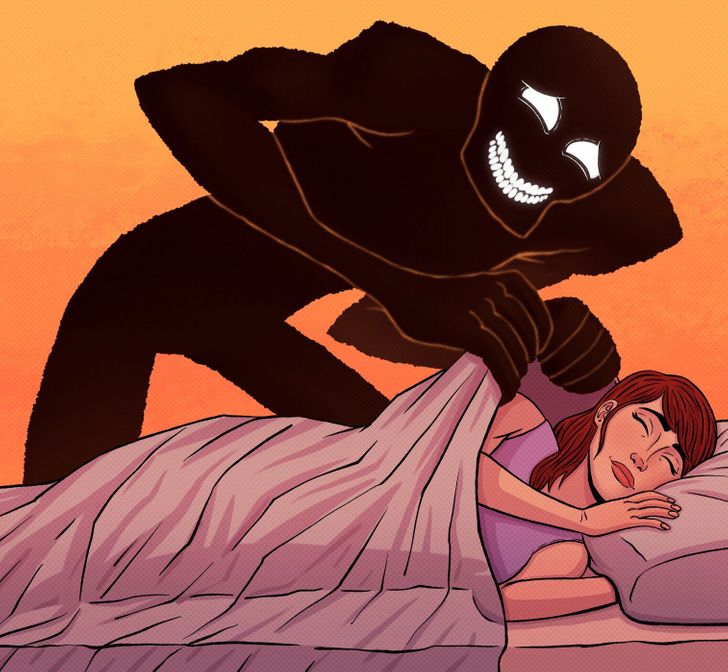
What happens to the human body during sleep paralysis
- Sleep paralysis, occurs when the person is in REM state (when you sleep more deeply) paralyzes the body and makes any movement impossible. As much as you want to move your arms or legs or get out of bed, it is impossible.
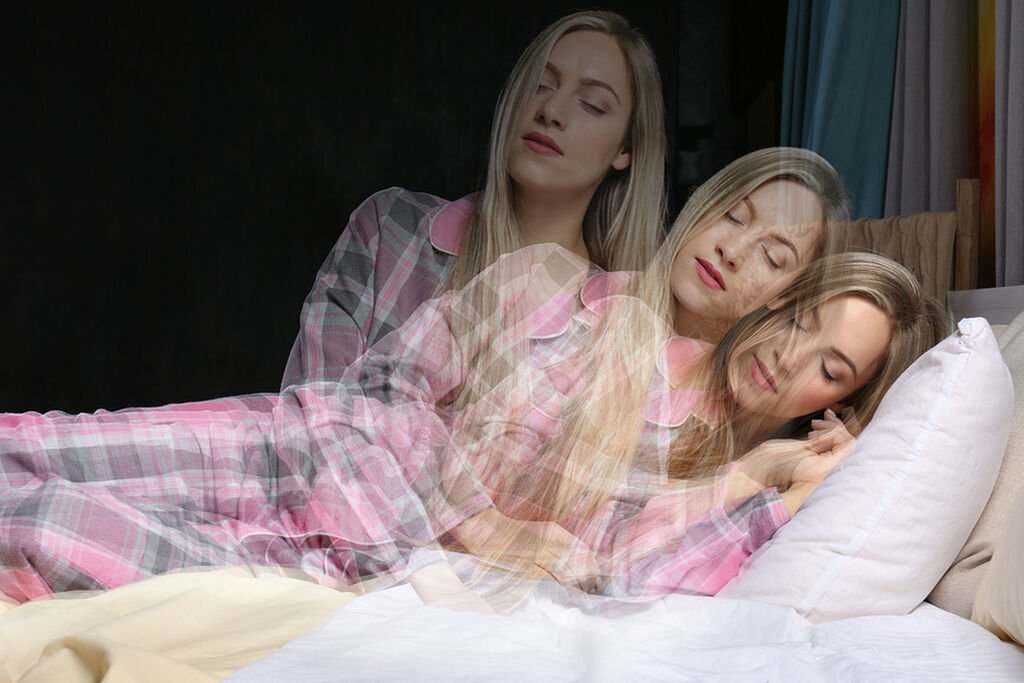
- Many people report that they have hallucinations and "see" huge insects or snakes crawling towards them, while they remain motionless and speechless in bed.

- You feel that you have a big weight on your chest, you can not breathe and you feel that you are drowning. The important thing in this case is to stay calm and remember that this feeling will soon pass.
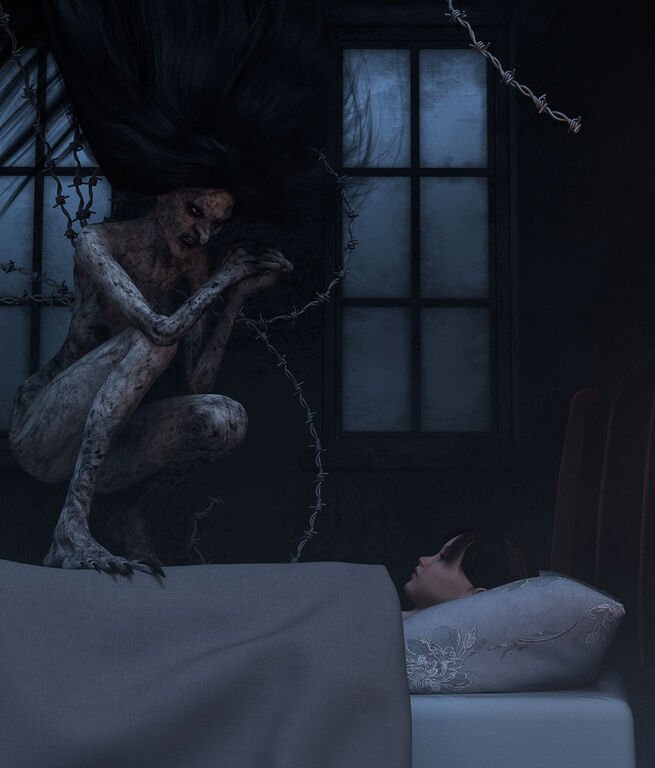
- Paralysis can occur in the early stages of sleep, between 90 minutes and two hours after bedtime.
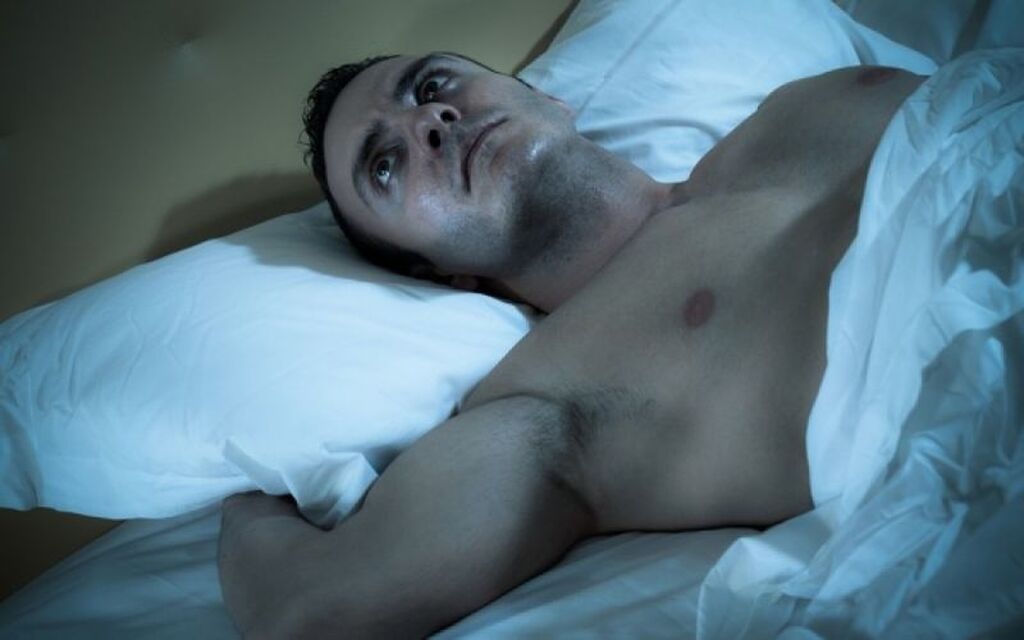
- Those who have experienced sleep paralysis, had the illusion that an intruder is in the room, outside the window or door.
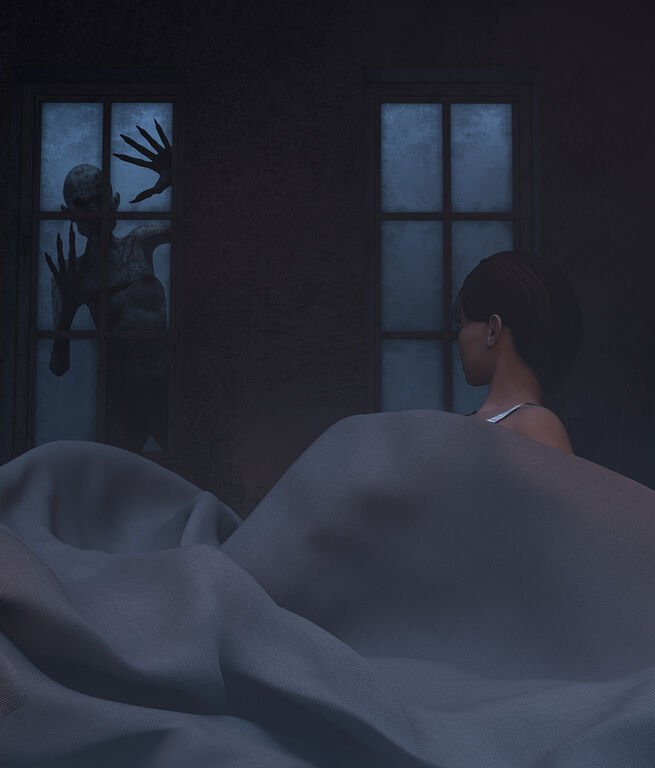
According to a study, which examined the most common sleep hallucinations, people with paralysis report experiencing strange experiences, flying or sailing out of their bodies.
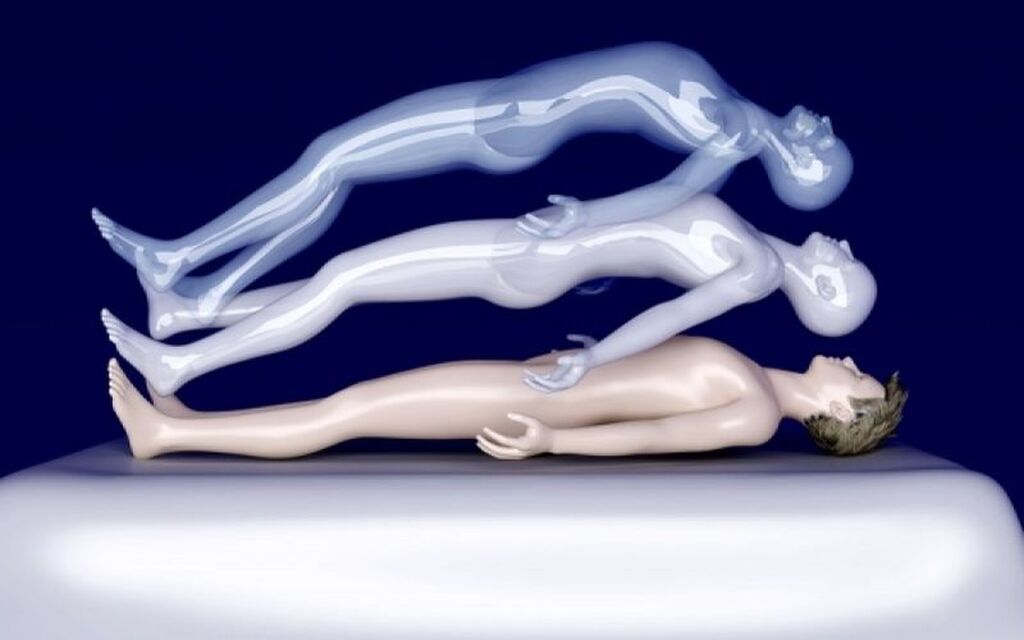
via
